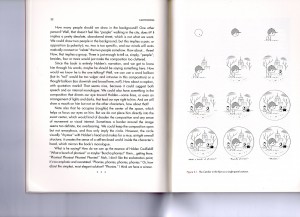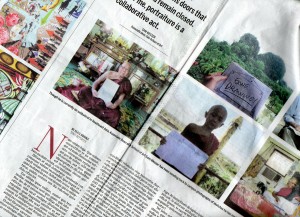By Artie Capshaw
“I got good,” says the man whose name was Sin.
“Sin-Gin” Smith got his melodious moniker from singeing his fingers with crack pipes. Or maybe it was that period of his life when he would reliably drink a fifth of gin—or rum, or whatever was handy—a day.
Unsurprisingly, he doesn’t exactly remember. In some respects, he’d like to forget. Yet he also doesn’t want to let himself forget.
In case you’re worried that you’ve strayed into the “affirmations and beatitudes” column, rest assured that Sin-Gin is an ideal subject for the local band beat. Like so of those we write about (not to mention the readers) music saved his life.
As a kid, Smith had played saxophone in the high school marching band, and even joined an R&B party combo for a time. “But I wasn’t any good,” he recollects. “Everybody told me so. Playing music was just an excuse to party afterwards. When the band got better and I didn’t, they moved on.”
He worked as a mechanic, then didn’t work at all, then nearly died on a cold street corner after blacking out from a near-overdose. He woke up in a small stone archway jutting out from the back of First Church on Main. Had no idea how he’d gotten there. Slept there most of the next day.
When he woke up, he heard the kind of music which made him think he’d died. When he realized he was still mortal and conscious, he found the inner strength not to skedaddle but to investigate where the heavenly chords were coming from.
A church organ, naturally. Being played by the church’s eminent Pastor Will rather than the church’s musical director. But the organ was forgotten when Sin Gin peeked into the sanctuary and saw—on a stand beneath the pulpit, with light streaming upon it—a battered old saxophone.
He stepped loudly down the aisle, grabbed the sax, and spoke to the startled minister in the international language of song. A conversation ensued, and Sin-Gin’s spiritual awakening began on those notes.
The heaven-sent sax turned out to have been a gift for an upcoming tag sale at the church. Now it’s a fixture of a special service on the third Wednesday of every month: Jazz Vespers, led by guess who? “Sin-Gin”
Smith has polished the hallowed instrument lovingly, and has polished his playing too. One example of how well his salvation is going is that when we first heard about him, it wasn’t because he was some potential human-interest story about spiritual reawakening or overcoming drug abuse. We heard that the most sinuous sax in town was being blown at one of the severest (and soberest) jazz jams in town, amazingly at First Church on Main.
We went down with some jazz pals who know their shit, and they were itching to sit in. (Spiritual rebirth is not a prerequisite, but it is a happening scene and there can be a long sign-up sheet.) This is a tight, elegant and democratically run gathering where folks play and sing their guts out. No egos—there’s clearly a higher presence in the room that keeps everyone humble. There’s no solipsistic soloing, just sharing. Lots of smiling too.
Sin-Gin Smith has not only made up with old musician friends from his debauched decades, he’s made up with his instrument of choice—the only thing he inhales or drinks in these days, he jokes.
“What can I say?,” he says again. “I got good.”
The daunting duo The Brave Bulls charge (where else?) The Bullfinch, with opening sets from a bevy of solo singer-songwriters: Boy with Green Hair, Mr. Hex and Crimson Canary… The Crowd Roars (not really), Deadline at Dawn (featuring scribblers for the local rag), Dishonored Lady (wouldn’t that be their groupies, not the band?) and Dragon Seed at Hamilton’s New Band (i.e. “impress us and maybe we’ll pay you next time”) Nite… Another new local band, Puddlestone, got the opening slot for the sold-out Dust Be My Destiny and Earth Vs. the Flying Saucers at D’ollaire’s. Hard to believe, and believe us, we’re investigatin’…



